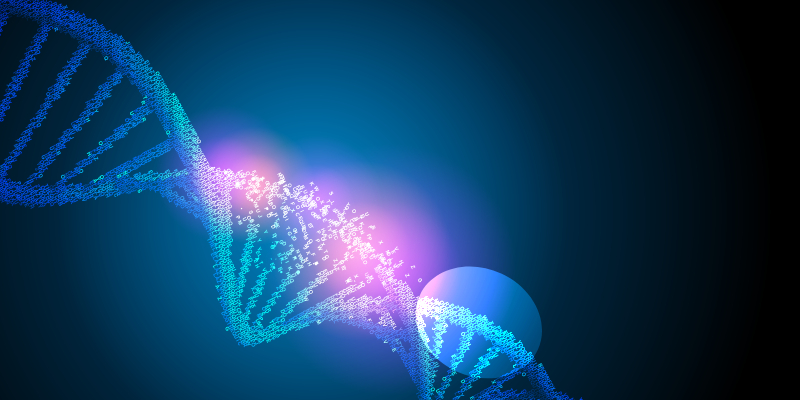
A new study suggests “unmanipulated leukapheresis products share peculiar immunophenotypic and transcriptional features” that impact the expansion of CD19-directed chimeric antigen receptor (CAR) T cells and affect patient outcomes.
Cristiana Carniti, PhD, of the Fondazione IRCCS Istituto Nazionale Tumori and Università degli Studi di Milano in Italy, presented the research during the European Society for Blood and Marrow Transplantation-European Hematology Association Fifth European CAR T-Cell Meeting.
Dr. Carniti and colleagues conducted the research because while CD19-directed CAR-T therapy can “induce durable remissions” in patients with relapsed or refractory large B-cell lymphomas, the “biological factors identifying patients achieving a prolonged progression-free survival (PFS) are not fully delineated.”
“It is reasonable to believe that the generation of CAR T-cells with optimal expansion potential and effector activity depends on the characteristics of endogenous T lymphocytes collected at the time of leukapheresis,” Dr. Carniti and colleagues wrote. “We explored the impact of phenotypic and transcriptomic features of pre-manufactured T cells on the outcome of LBCL patients treated with tisagenlecleucel and axicabtagene ciloleucel as standard of care.”
The investigators prospectively collected leukapheresis products from patients with LBCL who were receiving tisagenlecleucel or axicabtagene ciloleucel. They characterized the leukapheresis products using antibodies directed toward CD45, CD3, CD4, CD8, CD45RO, CD62L, CD197, and CD95 on a Becton Dickinson Biosciences FACSCanto II using FlowJo software. They digitally quantified RNA of sorted CD3-positive cells by using the Nanostring nCounter 780-gene CAR-T Characterization Panel.
Dr. Carniti and colleagues investigated whether T cells collected by leukapheresis from expanders—defined as patients with a concentration of CAR T cells higher than the median at day 10—were different from the T cells of non-expanders. They compared the composition of T naïve, stem cell memory, central memory, effector, effector memory CD4-positive and CD8-positive subsets between expanders (n=30) and non-expanders (n=30).
The frequency of stem cell memory cells among CD3-positive cells was “superior” in expanders compared with non-expanders (P=.01) and was correlated with the presence in the infusion products of central memory CD8-positive CAR T cells (P=.004), according to the study’s investigators.
This finding is “consistent with the association between the likelihood of expanding CAR T cells in vivo and the infusion of higher doses of [central memory CD8-positive] CAR T cells that we have recently reported,” Dr. Carniti and colleagues wrote.
They also performed a Nanostring-mediated gene expression analysis of 74 leukapheresis products to “further determine whether high frequencies of CAR T cells, which are associated with longer survival in our cohort, were attributed to the functional quality of the pre-manufacturing,” Dr. Carniti and colleagues wrote.
They identified a four-gene model including CD86, CD163, MS4A4A, and SIGLEC5 that segregated patients with different survival probabilities. Dr. Carniti and colleagues used leave-one-out cross-validation to confirm the predictive power of the four-gene model. The model retained its association with PFS in multivariate analysis (P=.03).
Patients who had over-expression of the four genes had significantly higher levels of monocytes at cell count (median, 24.6% vs 17%; P=.0004) and were “characterized by the presence of complexes of CD14-positive cells bound to CD3-positive cells,” according to Dr. Carniti and colleagues.
“Our study highlights that unmanipulated leukapheresis products share peculiar immunophenotypic and transcriptional features that affect the expansion and survival of patients treated with [tisagenlecleucel and axicabtagene ciloleucel],” Dr. Carniti and colleagues concluded. “In particular, our data support the idea that specific subsets of T-suppressive monocytes at leukapheresis might be detrimental to CAR-T production and their presence might also reflect the immunosuppressive status of the tumor microenvironment in LBCL patients not responding to CAR T-cell therapy.”
Reference
Carniti C, Caldarelli N, Magni M, et al. A gene signature in leukapheresis predicts anti-CD19 CAR-T cell outcome. Presented at the European Society for Blood and Marrow Transplantation-European Hematology Association Fifth European CAR-T cell Meeting; February 9-11, 2023; Rotterdam, Netherlands.






 © 2025 Mashup Media, LLC, a Formedics Property. All Rights Reserved.
© 2025 Mashup Media, LLC, a Formedics Property. All Rights Reserved.